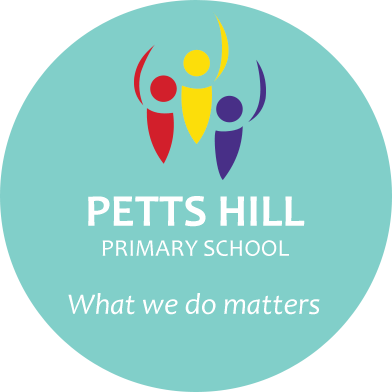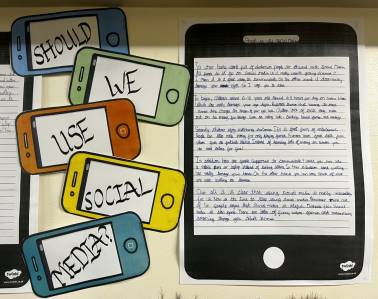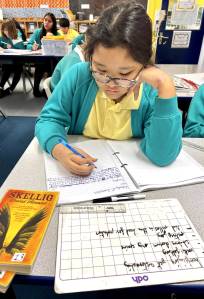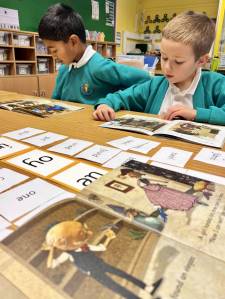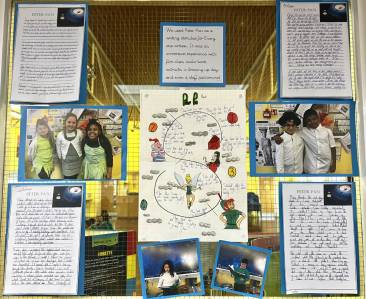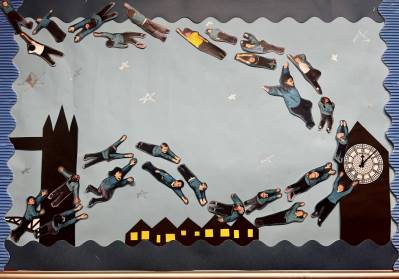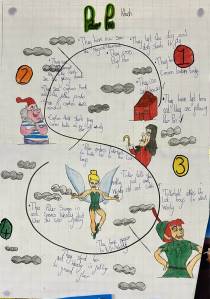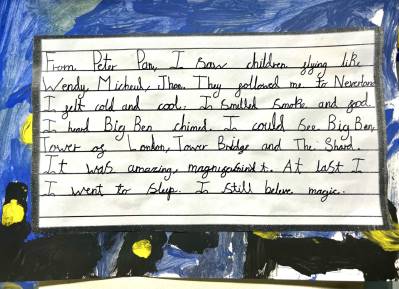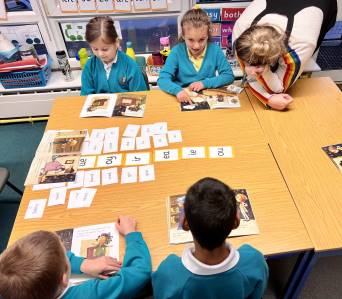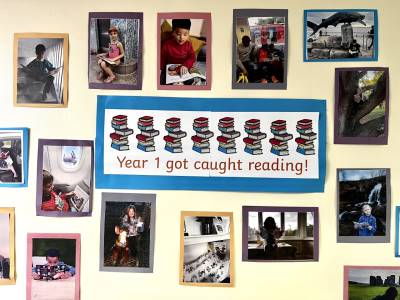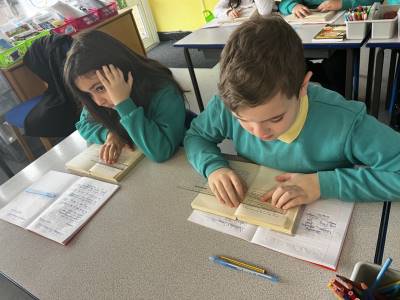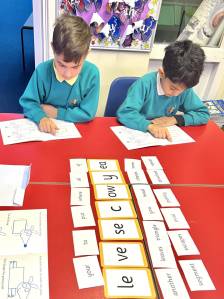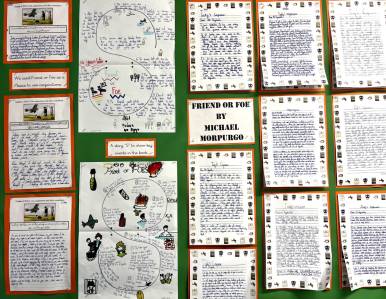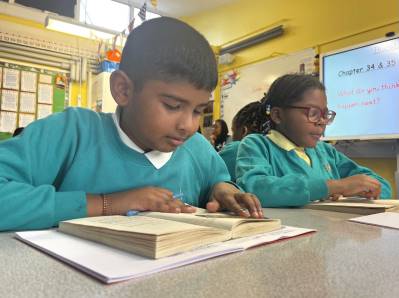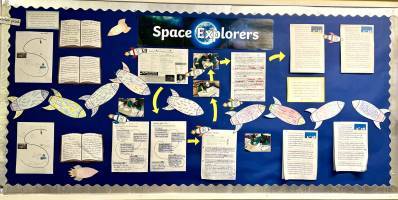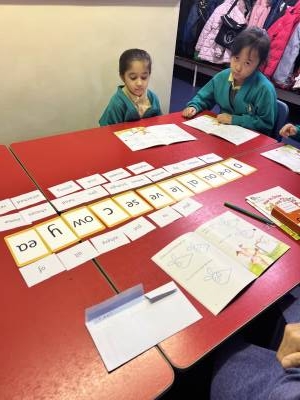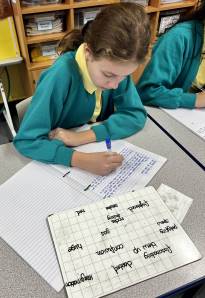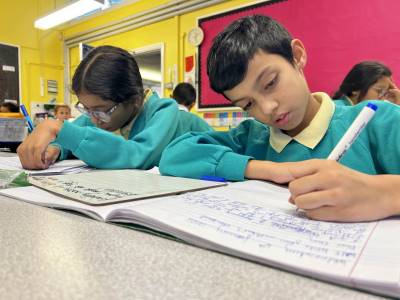English
English across Petts Hill
READING: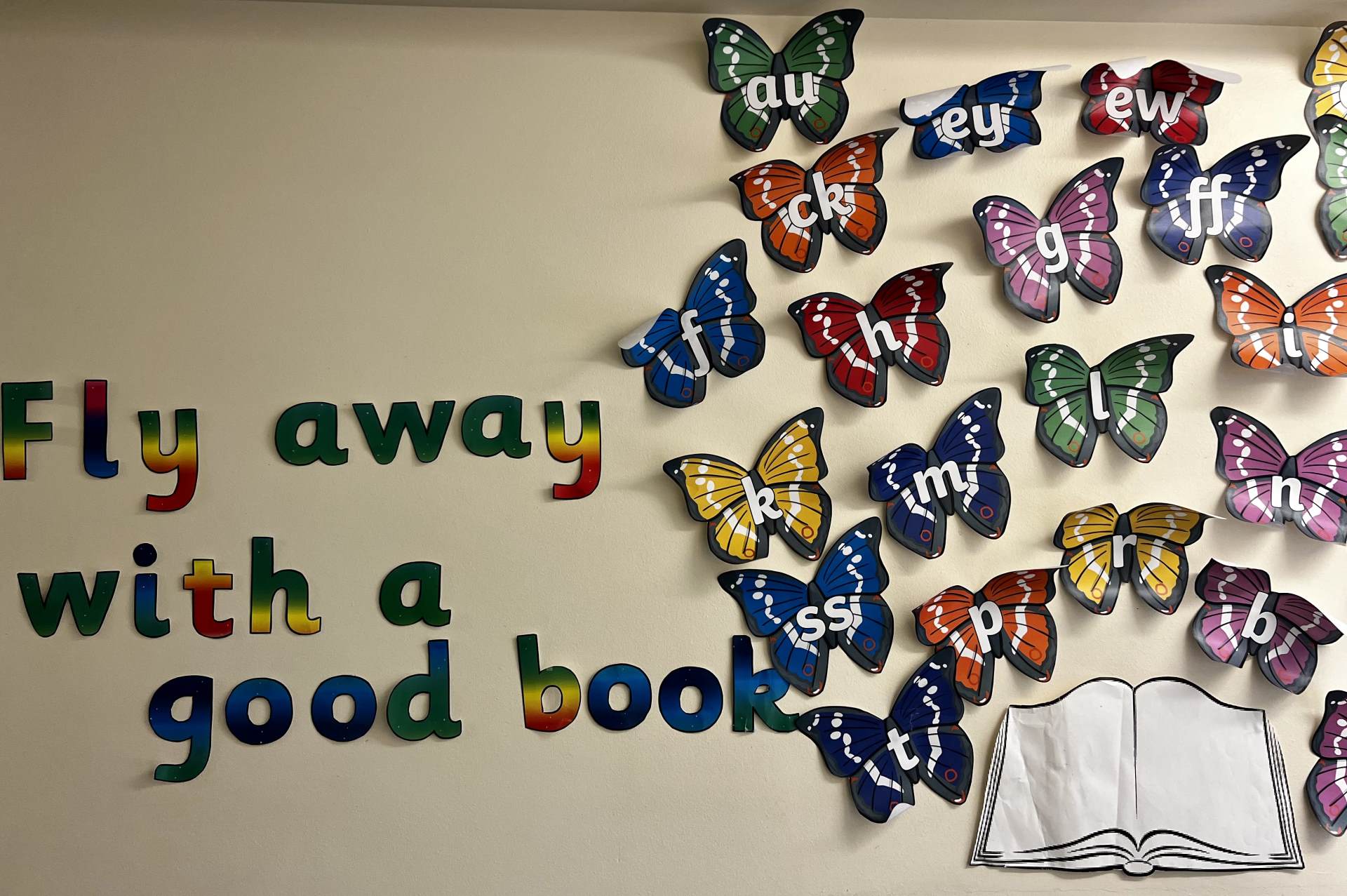
OUR AMBITION FOR EVERY LEARNER:
At Petts Hill Primary School, we believe that nurturing confident and competent children who have a love of reading is absolutely key to a child’s development and future success. We see reading as the key to unlocking the curriculum and a love of learning.
WHAT WE DO TO ACHIEVE THESE AMBITIONS:
Love of reading
We prioritise time for independent reading in school and at home and work hard to ensure that children have access to an engaging text that is well-matched to their age and stage of reading development.
Across the school, we aim for all children to be provided with a reading lesson every day to practice and consolidate their reading and comprehension skills. Children who are not reading at age related expectations (ARE) are targeted for support, either within lessons or as additional interventions, with an adult to help develop their phonic and reading skills.
Each child is provided with a reading folder, a reading book at the appropriate level and a home/school reading journal. Staff and parents will write in the journal when a child has read. Children may also be given phonic sounds, high frequency words or common exception words to practice at home in line with their specific gaps.
Phonics
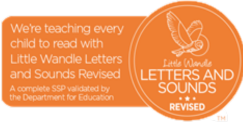
At Petts Hill Primary School, we believe that all our children can become fluent readers and writers. This is why we teach reading through Little Wandle Letters and Sounds Revised, which is a systematic and synthetic phonics programme. We start teaching phonics in Nursery/Reception and follow the Little Wandle Letters and Sounds Revised progression, which ensures children build on their growing knowledge of the alphabetic code, mastering phonics to read and spell as they move through school.
As a result, all our children are able to tackle any unfamiliar words as they read. At Petts Hill Primary School, we also model the application of the alphabetic code through phonics in shared reading and writing, both inside and outside of the phonics lesson and across the curriculum. We have a strong focus on language development for our children because we know that speaking and listening are crucial skills for reading and writing in all subjects.
- Discriminate between the separate sounds in words
- Learn the letters and letter combinations most commonly used to spell words
- Read words by sounding out and blending their separate parts
- Study written representations of a sound and how it looks
- Recognise on sight vocabulary identified as Tricky words
Key Stage 1 continues to follow Letters and Sounds to increase the children’s phonetic knowledge. Phonics is taught in discrete 20 minute daily sessions, with opportunities provided for children to apply their knowledge throughout the day in both reading and writing lessons.
Once children have moved into Key Stage 2 a range of phonics interventions are used in Key Stage 2 to support those children with remaining gaps.
For more information please see our phonics policy below and links to taught lessons for each stages of the phonics curriculum.
Guided reading:
EYFS
In EYFS, reading is also taught through story-time and, later in the year, Guided Reading sessions, where teachers will provide opportunities for children to practise and consolidate their phonic and reading skills. The children are given opportunities to apply their phonic skills throughout the day during phonics teaching, and independent reading to an adult.
Key Stage 1
In Key Stage 1, structured Guided Reading sessions are taught to develop children’s fluency, reading and comprehension skills. The high-quality texts chosen will be age-appropriate and aim to develop specific comprehension skills. The explicit teaching of comprehension is key to developing confident readers who engage with and understand the text.
Reading aloud is a fundamental reading skill. During reading lessons, prosody will be explicitly modelled to highlight good timing, phrasing, emphasis, and intonation when reading. Research shows strong links between oral reading prosody and general reading achievement.
Opportunities are provided for children to apply taught skills both guided and independently during whole class reading lessons and 1:1 reading with an adult.
Key Stage 2
In Key stage 2 pupils, are taught guided reading through a daily 45-minute whole class guided reading lesson. Within these sessions, a range of reading skills are taught to the children based on the national curriculum expectations divided up into the 7 content domains. The weekly approach is broken down into key areas of reading: vocabulary, shared reading of a text, guided and independent practice and work on Tier 2 words linked to morphological and etymological understanding. The explicit teaching of fluency is embedded into the guided reading sessions throughout the week.
Whole Class Guided Reading
At Petts Hill Primary School, we also understand the importance for children to be exposed to range of genres and rich vocabulary. In every year group, classes have a class text which is read to them daily through whole class guided reading. This exposes all children to a range of high-quality texts and genres which they may not being able to access elsewhere. These books are carefully chosen to ensure inclusion and diversity and feature on our key stage two reading spine below.
HOW WE MEASURE OUR SUCCESS:
PM Benchmarking:
In Key Stage 1 we use PM benchmarking as a tool to assess and monitor the progress children are making with their reading. This assessment is then used to ensure children are on the right level of book and that their reading book is well-matched to their reading ability allowing them to apply what they know and make sustained progress over time.
Some children in Key Stage 2 are tracked using this bench marking until they have exceeded the PM levels.
Comprehension assessments
Children from year 2 to year 6 take a reading assessment 4 time a year as appropriate to their reading level and the results are used to inform next steps in teaching as well as to inform a summative assessment at the end of each year (supporting teacher assessment in year 2)
Rising Stars Online
Petts Hill currently subscribes to Rising Stars Reading Planet online service. This allows our children to access many titles online and interact with the quizzes that support the assessment of their reading comprehension.
WRITING:
OUR AMBITION FOR EVERY LEARNER:
Writing is a crucial part of our curriculum at Petts Hill Primary. By the end of Year Six we intend our children to have developed a love of writing and to be able to express their thoughts and ideas clearly and creatively through the written word. We also intend to create writers who can re-read, edit and improve their own writing, and enable pupils to be able to confidently use the essential skills of grammar, punctuation and spelling. At Petts Hill, we set high expectations for all our children to take pride in their work and have a fluent, cursive handwriting style alongside allowing their imaginations to flourish.
WHAT WE DO TO ACHIEVE THESE AMBITIONS:
EYFS:
In Autumn 1, the children begin by working on their letter formation, teacher’s model writing in whole class lessons and children write words and captions with guided support in small groups. During phonics sessions, children will also be expected to write words linked to the phonics sound they are learning.
Independent writing starts in Spring 1, these lessons always consist of an input linked to the topic or story of the week. Teachers will model simple words, captions and sentences depending on stage of year. The children will then work independently to write what was modelled into their books. Once a week each group will work with the teacher for a focused guided writing lesson.
KS1/ KS2:
Writing is taught through daily English lessons and are planned as an English learning journey. Skills are taught by building on prior learning and linking new learning to things they already know. Each learning journey is planned to have an outcome with a clear purpose and audience so that children can learn to write and make specific grammar, vocabulary and compositional choices based on that outcome.
Teacher plan using a combination of stimulus and approach including oral storytelling, non-fiction units and writing based on a novel or class text and poetry. We use the Wordsmith scheme of work on Active Learn as the basis of our planning and supplement this with other texts that link to the wider curriculum.
Everyone Writes
We hold termly whole school writing projects to celebrate our writing achievements and raise the quality of our outcomes with an inclusive and collaborative approach.
Writing throughout the Curriculum
All children in year 2 to year 6 write a piece of writing linked to the curriculum each week. This is most often a non-fiction linked to the learning in the Creative Curriculum sessions that week. Children are supported with example texts, word banks and are always shown ‘what a good one looks like’ WAGOLL for support.
HOW WE MEASURE OUR SUCCESS:
We make assessments of children’s writing regularly during the year. These assessments inform the next steps in writing development for each child and, at the end of the year, provide a summative assessment.
Each child’s end of year report has a detailed statement about attainment in writing as well as targets for development.
